Language
- Deutsch
- English
- Español
- Français
- Italiano
- Nederlands
- Português
Currency
- AUD Australian Dollar
- CAD Canadian Dollar
- EUR Euro
- GBP Pound Sterling
- SGD Singapore Dollar
- USD US Dollar
- ZAR Rand

What's the difference between a rest camp, fly camp and a tented camp? Which animals make up the Big 5, Little 5, and Ugly 5? What does having a ‘braai in a boma’ mean? These are the questions you’ll find yourself asking before and during your trip to Africa. When planning a safari, you're going to hear a lot of jargon that can be confusing for first-timers. To help you along, we've put together a crib sheet of safari words, terms and sayings you're likely to come across while here.
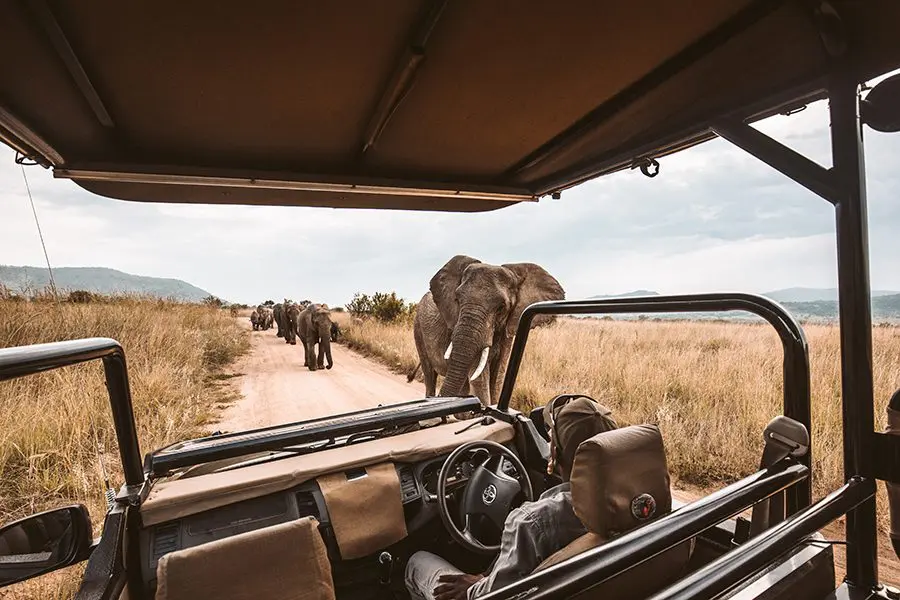
Amarula: This is South Africa‘s famous cream liqueur which is made with sugar, cream and the fruit of the African marula tree. It's the perfect sundowner or addition to your morning coffee when on safari, known as a ‘ranger's coffee'.
Biltong: A classic Southern African snack, biltong is an air-cured meat drenched in vinegar and spices. Various types of meat are used to make it, from beef to game meats like ostrich and kudu. American beef jerky shares many similarities with biltong.
Binos: Often abbreviated to ‘binos'- binoculars are a safari essential. Although animals can get close to the game vehicles, a high-quality pair of binoculars are a necessary tool for great wildlife viewing – especially for birdwatching.
Boma: No luxury safari is complete without a boma dinner. You'll feast on sumptuous meals around a roaring fire under a plethora of stars, usually in a beautiful traditional enclosure that makes for the perfect open-air dining venue.
Braai: Akin to a barbecue, a braai is when meat is cooked over an open fire and is a popular South Africa pastime. A braai just isn't considered a braai if cooked on a gas grill. The fire also remains lit for the duration of the braai, even after the food has been cooked.
Bush: Commonly used in Africa, bush is a loose term used to describe any savanna or grassland inhabited by big game.
Bush Breakfast: Each moment on safari is extraordinary, but some moments really stand out. You will walk, bike or go by safari vehicle to a specially selected, idyllic place in the wilderness where everything is prepared and waiting for you.
Bushveld: Used interchangeably with ‘bush', bushveld also refers to any savanna or grassland inhabited by big game.
Charter Flight: A charter flight is a light aircraft that is scheduled just for you or a small group. These small planes make for a unique experience as you soar over the untamed wilderness, taking in the picturesque views below. They are also used to connect you to the most remote destinations on the continent.
Conservancy: Conservancies are designated areas of a national park or other public reserves that are privately maintained to manage and preserve wildlife and the environment.
Dorp: Commonly used in South Africa, dorp refers to a small rural town or village.
Dry Season: Also known as peak or high season, dry season in safari terms refers to the dry winter months of a destination where animals seek out and congregate in their masses around waterholes and rivers to drink – making them easier to find. This is arguably the best time to go on safari as vegetation also thins out.
Endemic: Plants or animals that are native and restricted to a certain place. A few animals that are endemic to Africa include Hartebeest, African penguins and Grevy's zebra.
Game Drive: No safari is complete without at least one game drive. A game drive is an excursion to find some of Africa's most iconic and elusive wildlife. It is led by a guide who is familiar with the terrain and can lead you to the most amazing sightings. In some cases, you will also be joined by a tracker who specializes in ‘reading' natural signs – like broken branches or marks in the dirt – to find game.
Game Ranger: A game range is primarily responsible for the management of wildlife reserves or national parks. Their duties include the continued well-being of wildlife, population management, game capture and introductions, controlled burning and environmental education – amongst other things. They can also form part of vital anti-poaching units that ensure the success of conservation efforts.
Game Reserve: Also known as a wildlife preserve or game park, game reserves are a large area of land set aside as a protected area for wild animals. For example, the Kruger National Park is one of the largest game reserves in the world.
Gin & Tonic (G&T): G&Ts are arguably the most popular drink on safari. The highball cocktail, comprising gin and tonic water poured over a large amount of ice, makes for the perfect sundowner at the end of a long day of safari adventures.
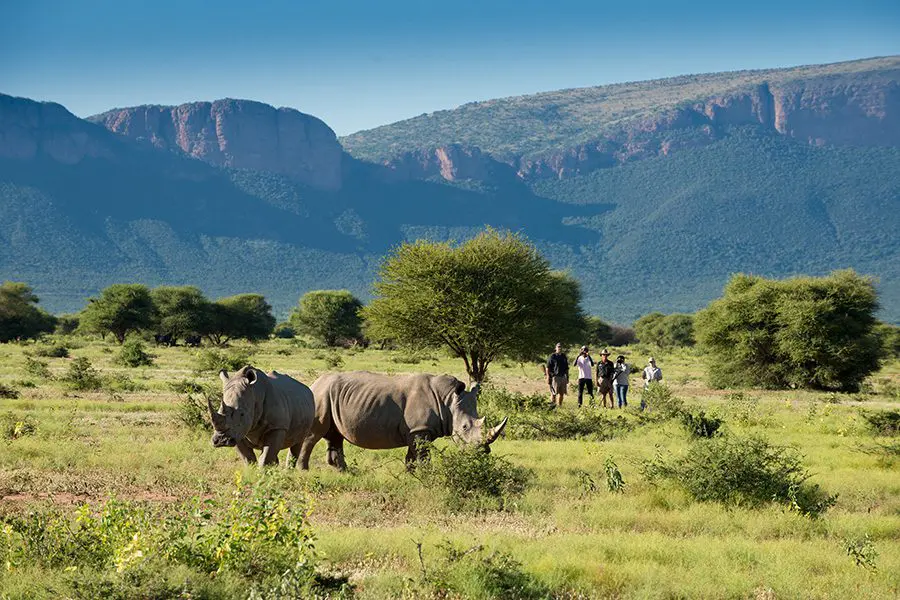
Green Season: This safari term is a best-kept secret and refers to a specific period in Africa that falls within the warm, rainy months. This is the perfect time to explore a country at its greenest and quietest, when nature is in its fullest bloom. Unlike the dry season, the green season is considered a low period for safari travel. Wildlife may be harder to spot among the abundance of new leaves and tall grass, but you could take advantage of some great travel discounts.
Guide / Field Guide: The African wilderness can be tricky to navigate on your own – which is where the guides come in. Guides accompany guests on their safari adventures around the reserve, whether it be a nature walk or game drive, and provide interesting and educational insights into all the elements of nature and wildlife surrounding them. Think of them as your personal tour guide through Africa.
Hidden Gems: Hidden Gems are journeys that are immersive and redefine the traditional way of travelling, enabling you to veer off the beaten track by going to places that are undiscovered by mass tourism.
Hides: Safari Lodges and camps use hides as a camouflaged or semi-subterranean shelter that provides a closer look at the wildlife passing by or stopping for a drink at a waterhole. Hides are the best places to snag that perfect wildlife shot.
High Season: Also known as peak or dry season, high season refers to the time when Africa is best for safari action. Popular safari destinations see high visitor numbers during this season as it provides excellent game viewing, including nature's grandest show – the Great Migration.
Indigenous: Plants, animals or people originating or occurring naturally in a particular place. Animals that are indigenous to Africa include pangolins, hyenas, African penguin, hyrax, puff adders and Cape buffalo.
Khaki Fever: Who doesn't love a man in uniform, right? Khaki Fever is the term given to the phenomenon of feeling extremely attracted to a khaki-clad ranger or guide while on safari. This is one fever you won't mind coming down with!
Koeksister: A traditional South African sticky donut treat made of fried dough infused in syrup or honey.
Kopje: A Dutch word that translates to ‘little head' and is often used to refer to small hills or rocky islands jutting out of the plains. This safari word is mostly heard when in the Serengeti.
Koppie: The alternative spelling for kopje.
Safari Lodge: Any safari accommodation that consists of permanent concrete, stone or wood buildings and structures. Safari lodges also tend to be bigger and provide more amenities than their safari camp counterparts.
Long Rains: Refers to the time of year when Africa experiences heavy downpours and prolonged periods of rain. Long rains usher in a season of replenishment and growth after and before peak safari seasons.
Low Season: Also known as green season, low season refers to the time when Africa sees the least number of visitors on safari.
Midden: This is the name given to an animal dung heap or area of communal defecation. White rhinos, in particular, are known to make use of middens – which can be over three metres wide.
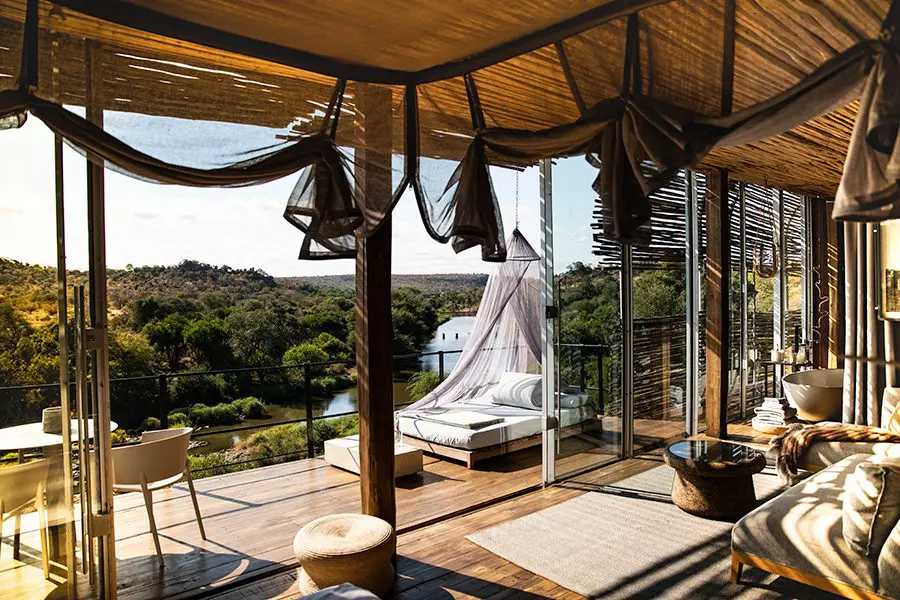
Mobile Camp: Mobile safari camps are lavish, tented affairs with all the creature comforts of a lodge and the added advantages of moving as you explore. These semi-permanent or mobile tented accommodations take inspiration from the vintage-style camps used by early European explorers in Africa. They operate according to the seasons and/or follow the movement of wildlife. Mobile camps are common in the Serengeti and Masai Mara, where they follow the Great Migration.
Mokoro: Most commonly used in the Okavango Delta and on the Chobe River in Botswana, mokoros are traditional dugout canoes that are propelled by pushing a pole from the stern of the boat.
National Park: A dedicated area set aside by a national government for the preservation of the natural environment and the wildlife that inhabits it.
Nature Reserve: In the same vein as national parks, nature reserves are designated tracts of land managed by a national government or private entity to preserve its flora, fauna and keeping the environment pristine.
Nature Walk: For those looking for an active thrill that goes beyond a game drive vehicle, nature walks offer the opportunity to connect with the intricacies of the African bush. Embark on adventures where your feet tread in the tracks of wildlife and all of your senses are heightened.
Night Game Drive: This is a game drive in a comfortable 4X4 safari vehicle that operates after dark, using a powerful spotlight to observe Africa's nocturnal creatures, such as leopard, bush baby, aardvark and honey badgers.
Open Borders: This safari terminology refers to private reserves that share an unfenced boundary with a larger national park or game reserve, allowing wildlife to move freely between the two areas. One example of this is the Kruger private reserves that shares open borders with the Kruger National Park.
Pap: Also known as mieliepap, pap is a traditional maize-based porridge, and a staple food in Southern Africa.
Private Concessions: Specific areas of a national park or other public reserves that are leased to or owned by a safari operator, lodge or camp for private use, and are run independently from the park itself. Private concessions offer an exclusive safari experience that includes activities not offered to those in the park, such as night game drives.
Private-/Exclusive-Use: This safari phrase refers to a safari home-away-from-home, where a lodge or camp can be completely booked out. Exclusive-use typically means that children of all ages are welcome and that you have full access to a private safari vehicle with a personal game ranger for the duration of your stay – in addition to other luxury and personalised services, like a butler or private chef.
Rondavel: A traditional African hut that is circular in shape with a conical thatched roof.
Rusks: Rusks are a traditional South African breakfast meal or snack that consist of dry, hard biscuits or twice-baked bread, similar to an Italian biscotti.
Rutting Season: During the Great Wildebeest Migration, April to June is referred to as rutting (breeding) season, and is one of nature's most amazing displays. This is when males fight for dominance in a noisy and violent affair for patches of prime grazing, and half a million wildebeest mate.
Safari: You've heard the word used a thousand times, but what does safari actually mean? Originating from the word ‘safar', an Arabic verb meaning ‘to make a journey', safari describes an overland journey to observe wild animals.
Safari Vehicle: Large open-sided 4X4 vehicles that are modified according to specific regulations that ensure the safety and comfort of visitors on safari. They allow you to traverse the African wilderness and encounter big game, safely.
Savanna: A grassy plain found in tropical and subtropical regions with few trees and scattered bushes. The savanna ecosystem has only two seasons – the wet and dry seasons.
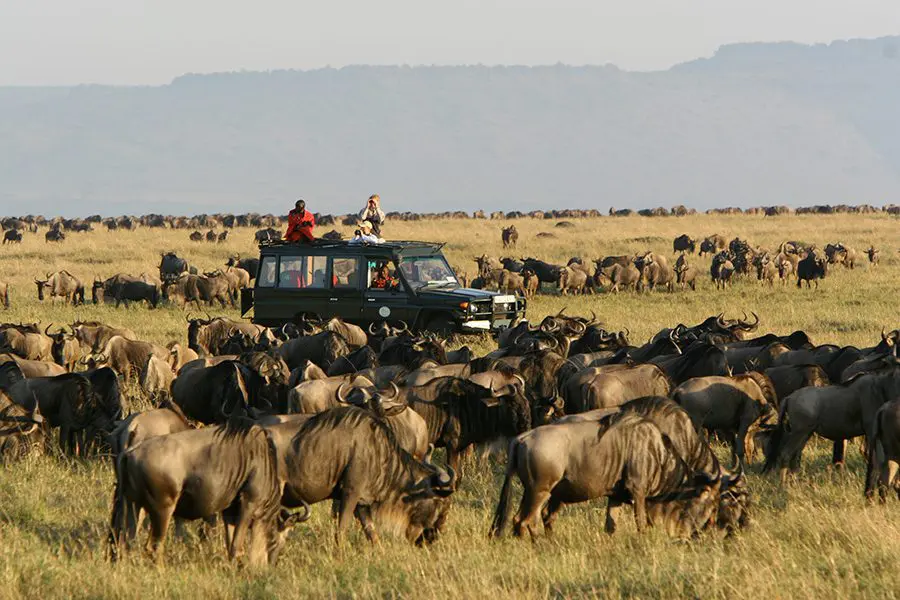
Short Rains: This refers to the time of year when East Africa and coastal areas on the continent experience periodic and impressive afternoon thunderstorms.
Shoulder Season: This safari saying is an industry term referring to the transitional months between winter and summer – the in-between period where it's not quite low season, but also not yet peak season.
Siesta: The Spanish word for ‘midday rest' is used in the same manner when on safari. Siesta refers to a mid-afternoon rest or nap, usually after a safari activity.
Star-Beds: The star-bed experience is an unmissable safari adventure that sees you sleeping out under stars in a treehouse-like, open-air room. With only a mosquito net between you and the milky way, you can be lulled to sleep by the sounds of nature and sometimes hear the nocturnal calls of lion and hyena.
Sundowner: One of the most popular rituals on safari is enjoying a sundowner at the end of each day. It involves stopping for a few drinks at dusk, usually at a scenic location or viewpoint and witnessing a famed African sunset.
Sustainable Travel: Often used interchangeably with responsible travel, green travel and ecotourism, sustainable travels supports the idea of travelling mindfully. Minimising the negative impact that trips can have into something positive for wildlife conservation, the empowerment of local communities and protecting the environment.
The Great Migration: The Great Migration is nature's greatest show and takes place in the ecosystems of the Serengeti and Masai Mara. An annual event, The Great Migration is the largest animal migration in the world, which sees over two million animals, including wildebeest, zebra and gazelle, migrate between the two regions in circular journey each year.
Tour Operator: This is one definition we know all about, we are a tour operator! Since 1998, we've built up a formidable bank of first-hand knowledge of every destination, lodge, camp and activity that we recommend from our 3,000+ safari partners. To top it off, our Africa Safari Experts go above and beyond to craft ideal tailor-made itineraries that meet all the wants and needs of our clients – which means you can rest assured that you'll have a once-in-a-lifetime safari.
Tracker: When on safari, many game viewing experiences often include the presence of a tracker to enhance the activity. A tracker's job is to show remarkable skill in following animal tracks to locate wildlife in the area.
Trips with a Purpose: Go2Africa's Trips with A Purpose are a collection of all our itineraries that feature our Positive Impact Safaris, as well as immersive, hands-on experiences and automatic financial contributions that support other projects we have not partnered with.
Twitcher: British slang for birdwatcher.
Ugali: Similar to pap, ugali is a maize or cassava-based porridge that is often served with fish, meat or vegetables. Ugali is a traditional dish served throughout East African countries, especially Tanzania.
Veldskoen: Often referred to as ‘vellies' for short, veldskoen shoes originated in South Africa and are a leather field shoe that is typically worn on safari. However, the shoe has grown in popularity over the years, and is now worn as a fashion statement on the streets of trendy cities, like Cape Town, as well as to explore the bush.
Vlei: A vlei is a shallow natural pool of water, or low-lying, marshy ground that is covered with water during the rainy seasons.
Wet Season: Also known as rainy season or green season, the wet season refers to the warm, rainy months in Africa. Although the animals are a bit harder to spot among the abundance of new leaves and tall grass, it is also one of the best times to go on safari. There are many great deals on offer at this time, and you get to witness an abundance of newborn life.
Big Five: The term ‘Big Five' is used for lion, leopard, rhino, elephant and African buffalo. These five large African mammals were known to be the most dangerous to hunt in the heyday of the 19th and early 20th centuries, and the name stuck. Today, the only ‘shooting' that is done is through a camera lens.
Bush Baby: Also known as galagos, bush babies are saucer-eyed primates that spend most of their lives in trees. They are small nocturnal primates native to continental, sub-Sahara africa.
Crepuscular: Animals that prefer to be active or appear during the time of day before the sun goes down or just after the sun rises. In short, when the light is not too bright, you'll find these animals skulking the land. Crepuscular animals include lions and bats.
Dagga Boys: Solitary older male buffalos are sometimes referred to as Dagga Boys (dagga meaning ‘mud'). This is after they have been forced out of a herd by young, virile bulls, or have fallen behind the herd due to their need for softer vegetation.
Dassies: Also known as a hyrax, dassies are considered the closest living relative of the African elephant, dassies are small, hoofed mammals native to Africa.
Diurnal Animals: Animals that are active during the day and sleep at night. Diurnal animals in Africa include elephants and meerkats.
Flatdogs: A nickname for crocodiles, commonly used in southern African countries, like Zambia.
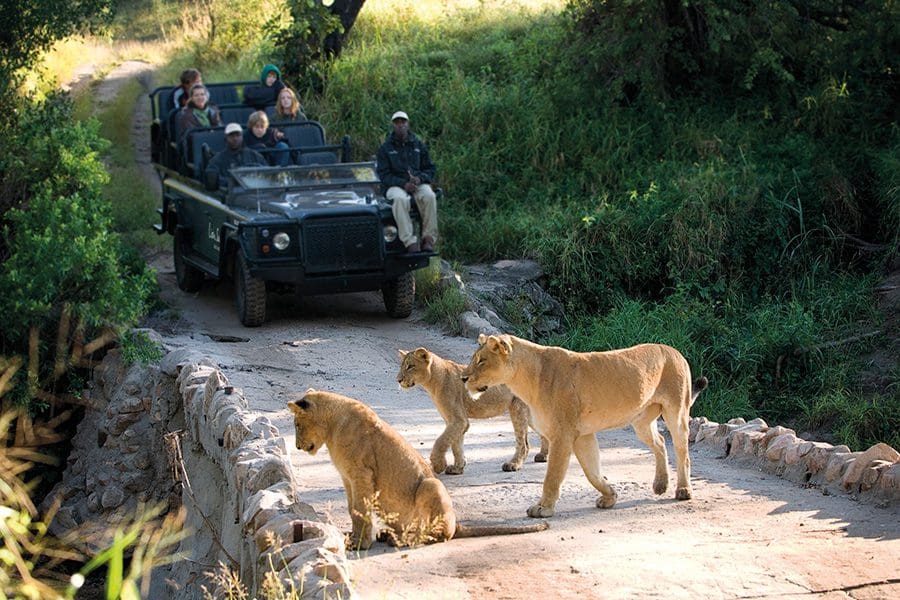
Little 5: You've heard of the Big 5 – now it's time to keep your eyes peeled for the Little 5 when on safari. The Little 5 comprises the ant lion, leopard tortoise, buffalo weaver, elephant shrew and rhino beetle.
Nocturnal: Animals that prefer to be active at night and are usually spotted on night drives. Nocturnal animals include leopards, bush babies and porcupines.
Pangolin: Often mistaken for a reptile, pangolins are an endangered insect-eating mammals that are covered in distinctive overlapping scales to ward off predators in the wild. Pangolins are solitary and mostly active at night, and as result, are one of the rarest animals to see on safari – so count yourself very lucky if you get to spot one!
Special 5: Like the Big and Small 5, the Special 5 consist of five animals consisting of the reticulated giraffe, Grevy's zebra, Somali ostrich, Beisa oryx and gerenuk.
TseTse Fly: Found in sub-Saharan Africa, Tse Tse flies are large biting flies that live off feeding on the blood of vertebrate animals.
Tusker: Tuskers are elephants or wild boars with prominent, well-developed tusks.
Ugly 5: Another grouping of animals to add to your safari must-see list is the ‘Ugly 5′. Comprising the spotted hyena, warthog, wildebeest, marabou stork, and vultures, the Ugly 5 got their name as they are superficially unattractive creatures that can be fascinating and fun to watch.
Hadzabe Tribe: Also known as the ‘Hadza', the Hadzabe tribe are a modern hunter-gatherer people living in northern Tanzania. They are one of the last hunter-gatherer tribes on Earth.
Himba Tribe: The resilient people of the Himba tribe live in the desolate Kunene region of northwest Namibia. They are hunter-gatherers and pastoralists and are a nomadic African tribe that traditionally travels from waterhole to waterhole, tending their cattle and goats. They are best known for colouring their hair and bodies with a red paste known as ‘otjize', considered a sign of beauty.
The Maasai: The red-clad Maasai of Kenya and Tanzania are renowned warriors and pastoralists who have roamed the wild of East Africa for hundreds of years. Among the many singing and dancing ceremonies practiced by the Maasai, the best-known is without a doubt the ‘adamu', or jumping dance.
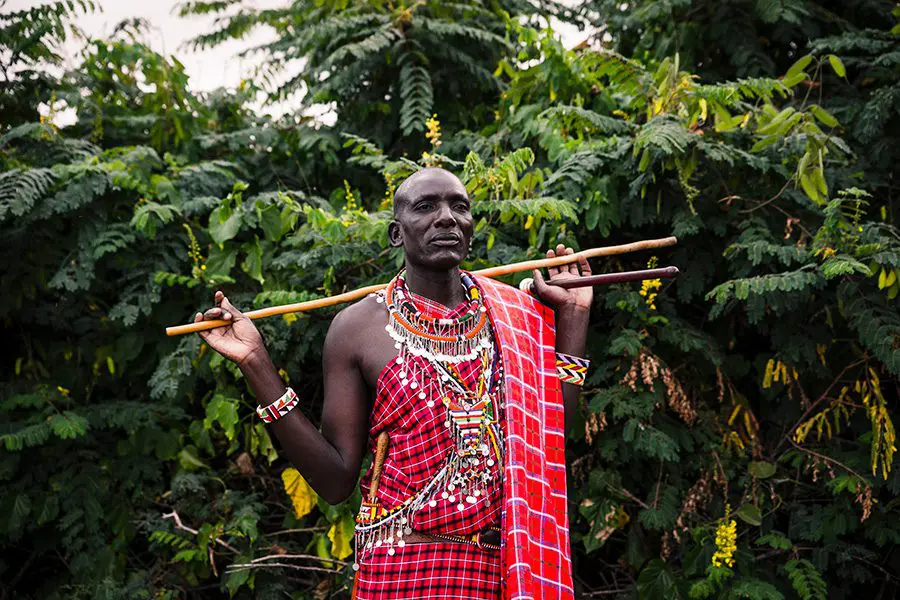
Khoisan: Revered as the first people of South Africa, the Khoisan are renowned for their close connection to nature, their nomadic lifestyle, and their language that comprises a distinctive clicking sound.
Samburu: Residing in north-central Kenya, the Samburu tribe are pastoralists from the great plains of the Samburu region. They are closely related to the Maasai people and speak a dialect of the Maa language.
Southern Ndebele Tribe: Widely distributed throughout the north-east provinces of South Africa, the Ndebele tribes are considered to be the cousins of the Zulu and share many linguistic similarities with them. However, they differ in the unique expression of their culture and beliefs.
Zulu Tribe: The Zulu people are the largest ethnic group in South Africa. They rose into a formidable empire under the leadership of Shaka Zulu in the early 19th century. Under his leadership, the Zulu kingdom expanded and played an important role in the history of South Africa.
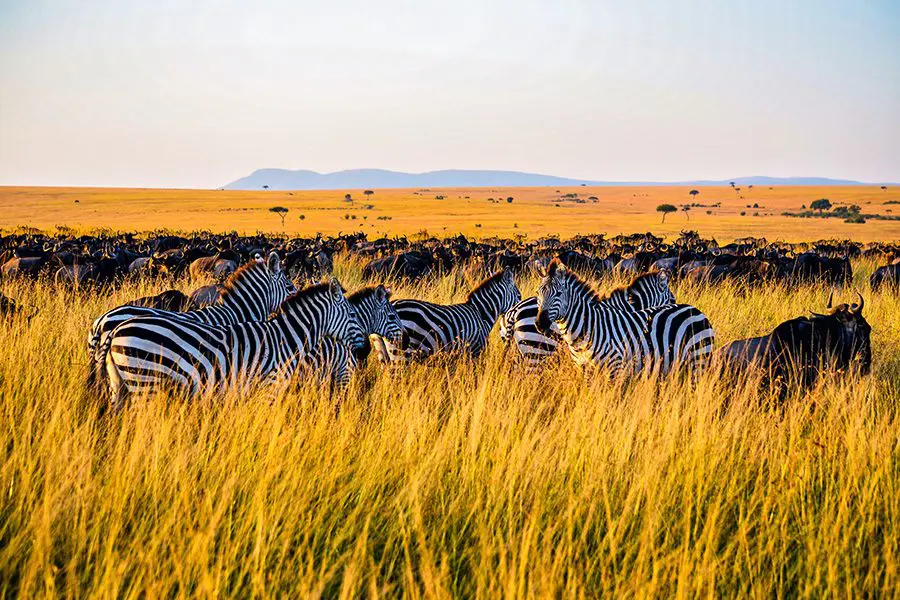
Asante Sana: ‘Thank you very much'.
Bwana: ‘Sir'.
Hakuna Matata: Popularised by the hit Disney classic Lion King, this Swahili phrase means ‘no worries'.
Jambo: A greeting akin to ‘hello'.
Karibu: A greeting akin to ‘welcome'.
Mama: One of the Swahili terms of endearment for ‘mother'.
Nyumba: Meaning ‘home' or ‘house'.
Rafiki: More than just a character in the Lion King, rafiki means ‘friend' in Swahili.
Safari Njema: A rough translation of this Swahili phrase means ‘have a nice trip'. Njema used on its own means ‘good'.
Simba: The creators of the Lion King were right on the money when naming their main character Simba, as the name translates to ‘lion'.
Twende: This is a common phrase you'll hear from your guide when in East Africa, it means ‘let's go'.
Wanyama: Although there is an endless list of individual Swahili words for animals, the general term to encompass all wildlife is ‘wanyama'.
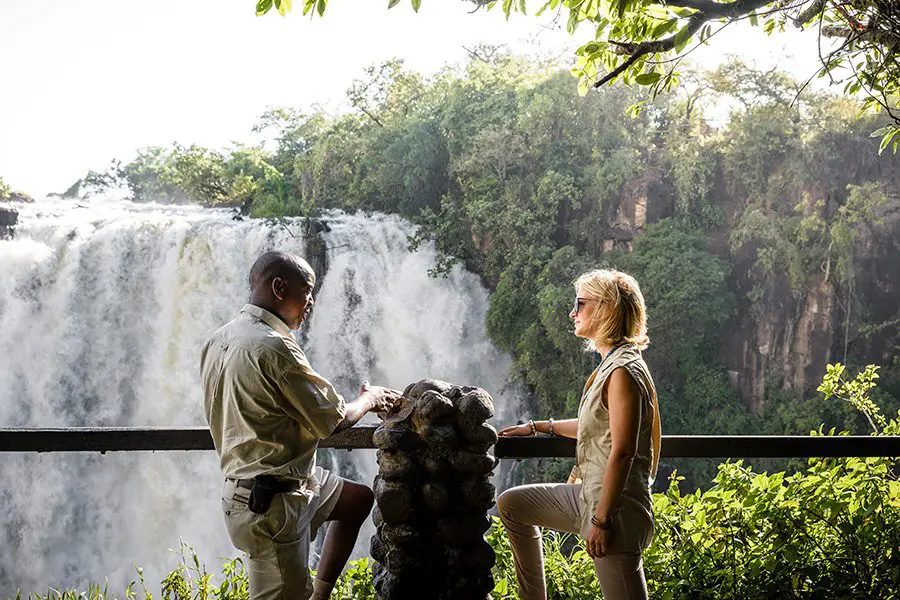
Aikona!: A Zulu term used to express shock or disbelief.
Babbelas: Used to describe a bad hangover. Babbelas is derived from the Zulu word ‘ibhabhalazi'.
Bakkie: The South African word for a ‘pickup truck'.
Boerewors: Also known as wors, boerewors is the Afrikaans word for sausage. Wors is 90% meat and 10% spices and other ingredients. The delicious food is often cooked during a braai and eaten on a roll with tomato sauce (ketchup) and mustard.
Bru: A term akin to friend, buddy or pal.
Dankie: The Afrikaans word for ‘thank you'.
Eish: An exclamation commonly used when you hurt yourself, or exasperation and surprise.
Hayibo!: A Zulu word usually used to express shock or disbelief.
Hectic: Akin to the word ‘crazy', and often used to express astonishment or amazement.
Howzit?: A greeting that acts as the shortened version of ‘how's it going?'.
Jol: This term can refer to a party, or having a good time.
Lekker: Commonly used in South Africa, this word is used to indicate something ‘great' or ‘nice'.
My China: Similar to ‘bru', it is a term used to mean ‘friend' or ‘buddy'.
Padkos: A name given to snacks you would eat on a road trip.
Robot: A South African word for traffic lights.
Sharp: Usually said as ‘shap shap' or “sharp sharp”, this South African phrase means ‘all is good'.
Ubuntu: Meaning, ‘I am because we are', ubuntu is an ancient African phrase that denotes the spirit of humanity, compassion and family.
Yebo: The Zulu word for ‘yes' or ‘that's right'.
Yoh: One of the most common South African phrases you'll hear is ‘yoh'. It is often used as an exclamation of surprise.
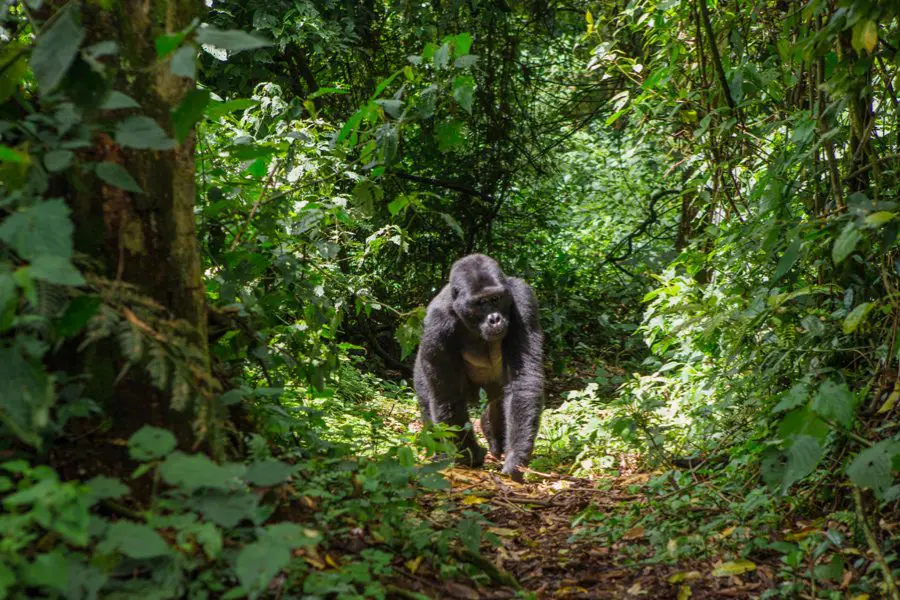
Chimp Trekking: Also known as chimpanzee trekking, chimp trekking sees you walking through the great ape's natural habitat in Uganda. Here, you'll be led by a trained guide through the tropical forest to watch the habituated chimpanzee families go about their business.
Desert Safari: Namibia and the Kalahari are two fantastic destinations to enjoy a desert safari – a holiday that consists of game drives through the arid landscape, spotting desert-adapted wildlife, including meerkats, lions, elephants, and rhinos. You'll also revel in fun activities like stargazing, hiking up dunes, sandboarding, and quad biking – to name a few.
Fly Camping: When fly camping, you'll have the opportunity to sleep-out under the stars in a simple yet comfortable tent. It is an adventurous, private and unique experience that immerses you into tranquil, untamed nature. Naturally, you'll be accompanied by expert guides to ensure you're kept safe at all times.
Gorilla Trekking: Many who have experienced this holiday type have described it as a life changing activity. Gorilla trekking is defined as a hike to the tropical forests of Africa to see endangered mountain gorillas in their natural habitat.
Horseback Safari: Experience the untamed African wilderness and encounter big game on horseback. Riding through the plains of South Africa, Botswana, Kenya, Tanzania or Namibia is an exhilarating adventure and one of the best ways to explore your surroundings on safari.
Hot Air Balloon Safari: A must-do adventure when travelling to East Africa is sailing through skies in a hot air balloon as you enjoy a birds-eye view of the picturesque wilderness and wildlife below. Ballooning usually takes place at sunrise, which means a pre-dawn wake up with steaming coffee, just in time to see the sun come up.
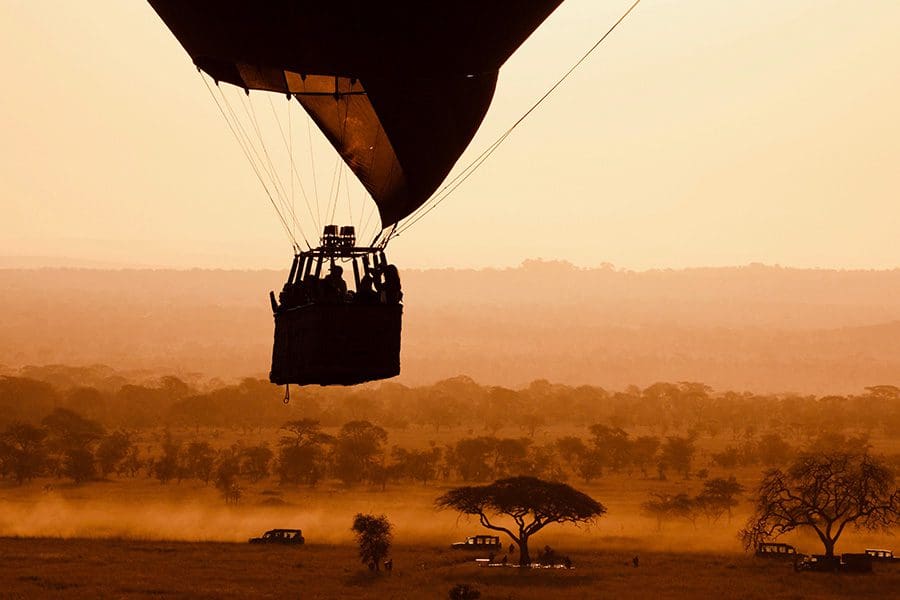
Marine Safari: Take to the water and encounter the majestic marine wildlife that inhabit Africa's azure oceans. From boats and kayaks to snorkelling and diving, there are many ways to explore the rich marine life, and spot marine mammals, birds and fish in their natural habitat.
Photographic Safari: As the name suggests, a photographic safari is an adventurous expedition into the wild, where the sole goal is to expose professional photographers or avid amateurs to the best wildlife photographic opportunities.
Positive Impact Safaris: Go2Africa's Positive Impact Safaris are journeys that support our many inspiring initiatives across the continent. Each trip includes a donation to one (or more) of our Community, Environment or Wildlife partnerships. These are once-in-a-lifetime experiences that aren't only good for Africa, but good for the soul.
Self-Drive Safari: Take your safari into your own hands on a self-drive adventure. On this activity, you'll get your own dedicated 4X4 vehicle and drive yourself across the African destination of your choice. Usually offered in South Africa and Namibia, self-drive safaris allow you to explore a country or national park at your own pace.
Urban Safari: The safari doesn't end when you land in a big city like Cape Town, Nairobi, Johannesburg, Durban and Stone Town. Urban safaris are a guided experience through Africa's cosmopolitan cities, allowing you to immerse yourself in local life, incredible cultural diversity, and beautiful natural heritage.
Walking Safari: Guides lead you on a slow-paced walk with the objective to explore different wildlife species along the bush. A walking safari is an unforgettable adventure that sees your days spent following animal tracks, shadowing a foraging baboon troop, or settling down in the shade to watch buffalo gather at a waterhole.
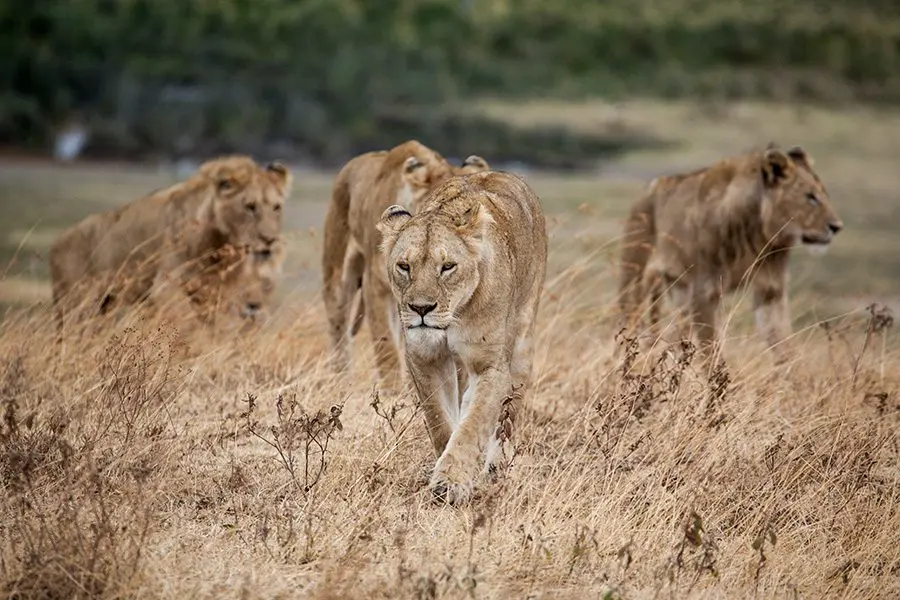
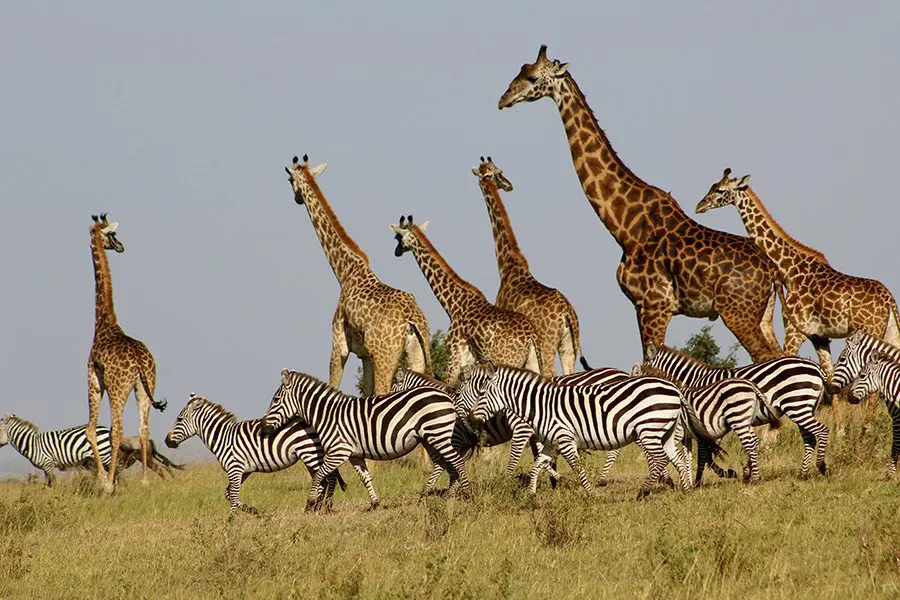
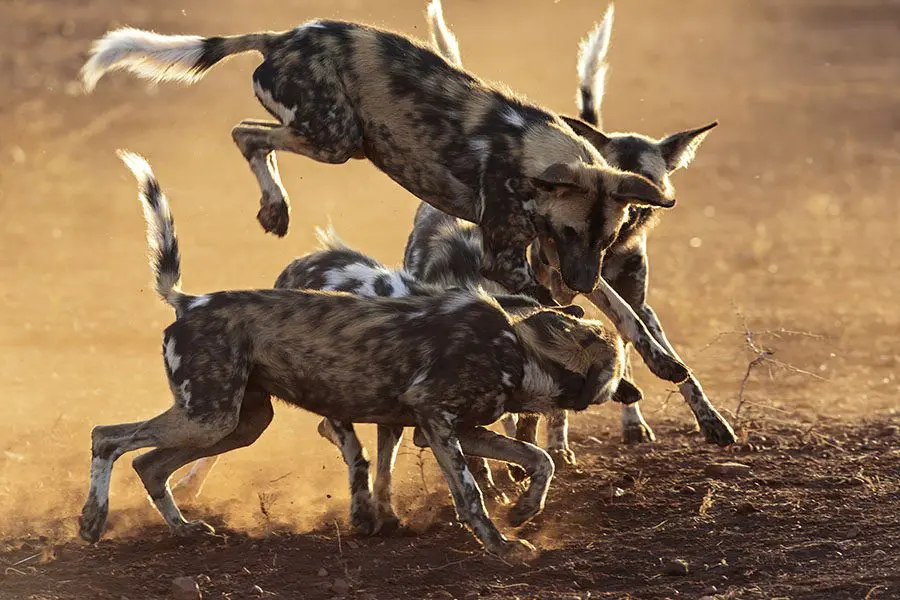
Put your newfound safari lingo into action by planning your next African getaway. Get in touch with one of our Africa Safari Experts to help craft a holiday itinerary that's right for you: